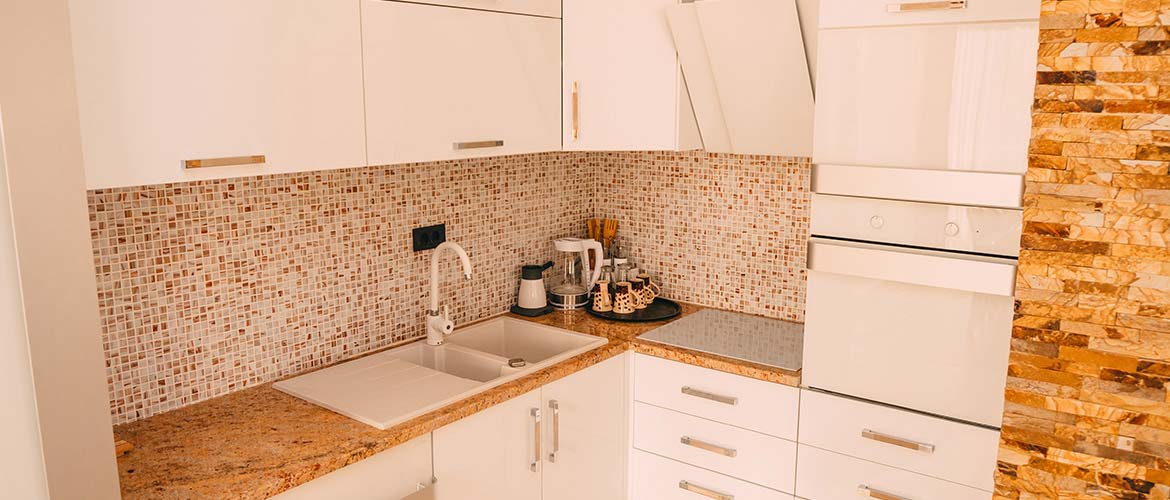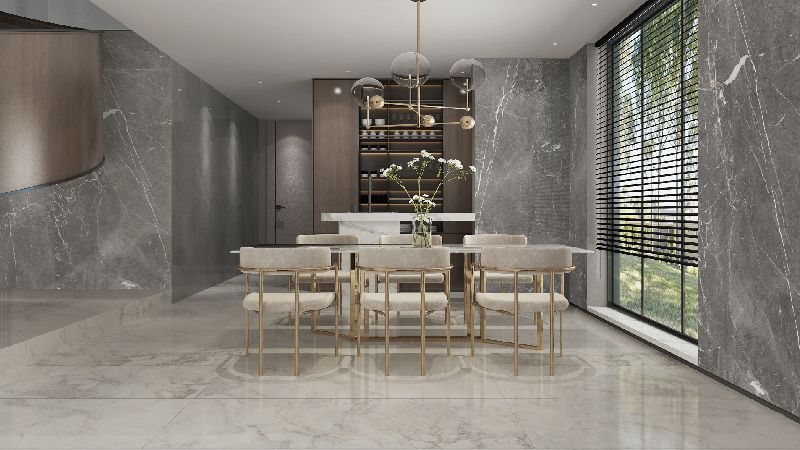Are you renovating your kitchen? Or are you in the midst of your dream kitchen project? As you shop around for kitchen countertops, we’re sure that you would have come across several materials. There are the traditional natural stone countertops like granite and marble. On the other hand, there are contemporary choices like quartz and porcelain. What makes these two materials different from natural stone? Between porcelain and quartz, which one is better?
Not to worry! As the no.1 porcelain quartz supplier in India, we help you decipher these two popular countertop materials. We put them head-to-head to see which is the better option. So, let’s get started.
Choosing the Right Kitchen Countertop
The kitchen is the heart of the home. It’s one of the most used and most visible areas in your home. Hence, you need to spend extra time researching the different materials available and choose the best one for your kitchen. When choosing the right kitchen countertop material, you have to consider several factors like – ease of maintenance, durability, aesthetics and cost. What if several materials meet all these factors? Then, how do you select one?
In this post, our design experts at Emperors Vitrified Porcelain, the top porcelain and quartz slabs suppliers in India show you how porcelain and quartz compare with each other, and which is the best choice for Indian kitchens.
What is Porcelain?
Porcelain is a type of ceramic that is made by heating silica and other materials at very high temperatures. While the actual composition of porcelain varies, the major element is kaolinite – a particular type of clay. The kaolinite makes porcelain flexible, while petunse another major component of porcelain makes it hard and durable.
Best Features of Porcelain
Porcelain is
- Extremely hard
- Durable and long lasting
- Heat resistant
- Colour fast
With that said, porcelain has certain disadvantages. Let’s look at them.
- The patterns on porcelain countertops are only surface deep. This means, if your countertop is scratched or chipped, the damage will interrupt the pattern flow.
- Also, porcelain countertops tend to be thinner than other popular countertop materials like quartz, marble and granite.
Porcelain works best as kitchen tiles – for both floors and walls. Here are the benefits of using porcelain tiles for kitchens:
- Easy to Clean – Porcelain tiles can be easily cleaned using regular household cleaners or even a diluted solution of water and detergent. No need for special cleaners or polish.
- Slip Resistant – Porcelain tiles are naturally slip resistant, making them the best choice for water prone areas like kitchens, utility areas, etc.
- Colour Fast – The colours of your porcelain tiles do not fade with age and on exposure to sunlight.
- Aesthetics – Porcelain tiles are available in a wide variety of colours, patterns and textures. These tiles can even mimic natural materials like wood, marble, granite and more.
What is Quartz?
Contrary to popular assumption, quartz tiles are not natural stones. They are man-made and made by pulverising natural stone, glass and other materials using polymers and binders to keep it together.
Best Features of Quartz
Quartz is:
- Durable
- Dense
- Non-porous
- Scratch resistant
Since quartz is non-porous, it means you don’t have to apply any extra sealers. It doesn’t absorb moisture or spills; hence it naturally inhibits the growth of mould, bacteria, virus and other pathogens. Quartz countertops can also handle spills better than natural stone and porcelain. As long as you clean up the spills quickly, it doesn’t create any permanent stains. Additionally, quartz countertops are also heat resistant; meaning hot pots and pans can be placed directly on the countertop without cracking the stone.
Here are the top three benefits of using quartz countertops for kitchens:
- Durability – Quartz is durable and lasts for long. It has a lifespan similar to other durable natural materials like granite.
- Easy to maintain – Cleaning quartz countertops is super easy. All you need is regular soft cloth and mild detergents and your countertop will look good as new for years to come.
- Aesthetics – Just like porcelain, quartz can mimic other natural stones like granite, marble and even wood.
Quartz Vs Porcelain: What’s the difference?
- The biggest difference between quartz and porcelain is heat resistance. Porcelain can withstand direct exposure to sunlight while quartz can get discoloured and bent when exposed to sunlight over the years.
- Both quartz and porcelain are slip-resistant making them a great choice for floor tiles.
- Porcelain can be also used outdoors, while quartz is primarily an indoor material.
Wrapping up: Which is the better choice? Porcelain or Quartz?
Both quartz and porcelain are excellent materials for your kitchen. It all depends on your end usage:
- If you’re looking for a material that can be used both indoors and outdoors, then porcelain tiles are the best choice.
- When it comes to kitchen countertops, quartz have a slight edge over porcelain. Quartz is durable, heat-resistant and long-lasting.
If you have any further queries regarding porcelain tiles and quartz slabs, get in touch with Emperors Vitrified Porcelain, the no.1 porcelain floor and wall tiles supplier in India. Make sure to check our blog for tips on maintenance, cleaning and other home design ideas and inspiration.










